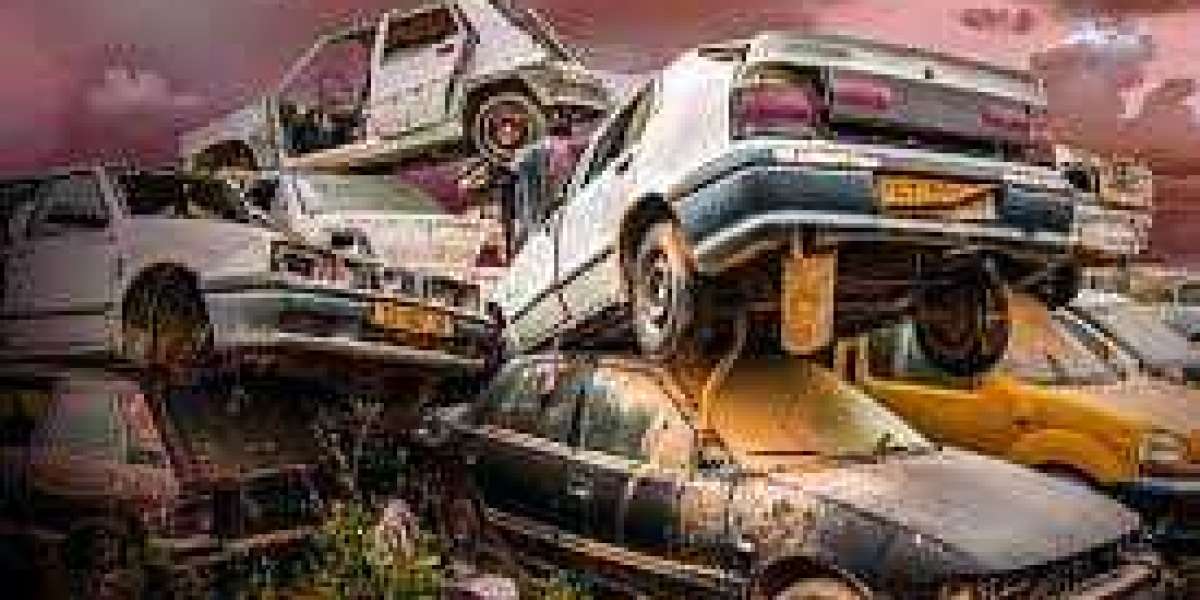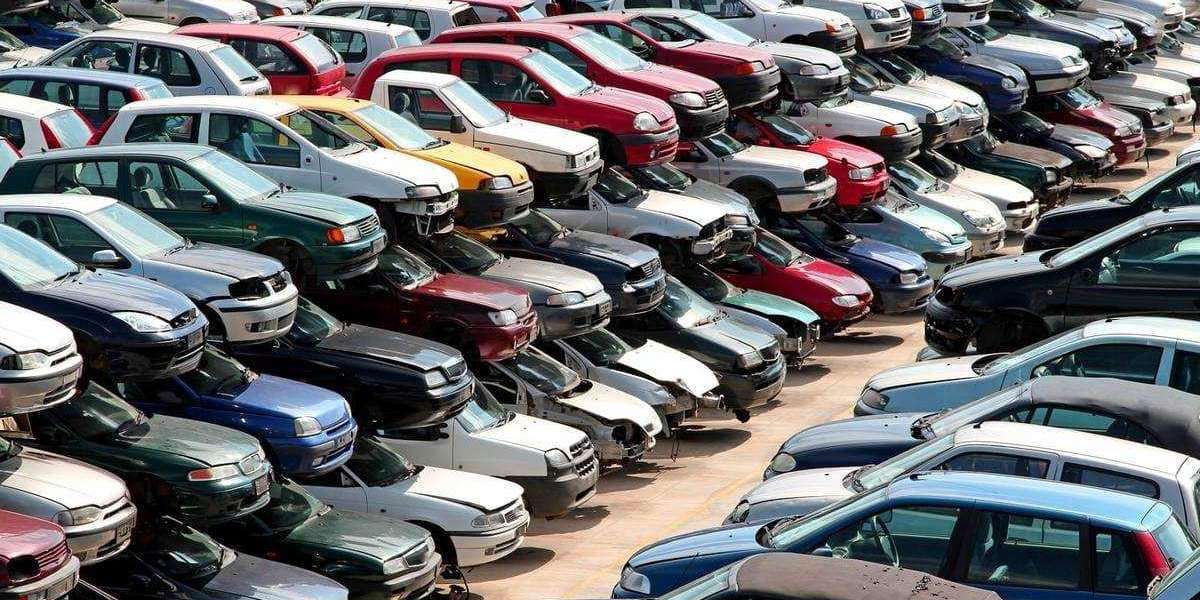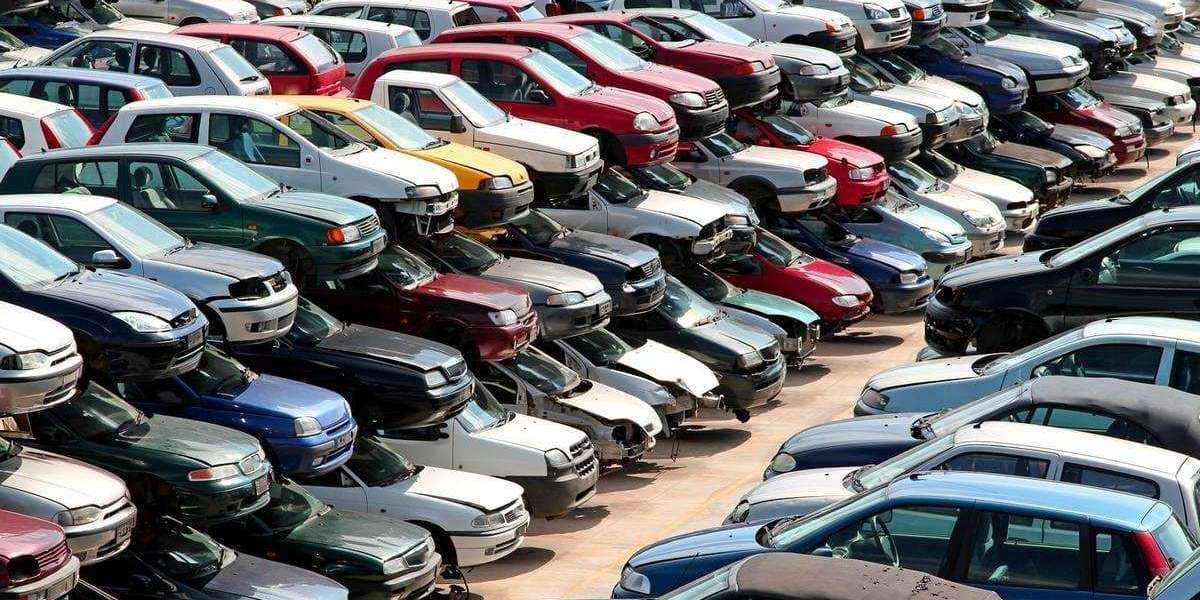There comes a time in every car owner’s life when a vehicle has simply outlived its usefulness. Whether due to age, an accident, or rising repair costs, getting rid of a non-functional or old car becomes inevitable. That’s where the option to scrap your car comes into play.
In this detailed guide, we’ll explore what a scrap car is, when it makes sense to scrap your vehicle, how the process works, how much you can earn, and how to do it legally and responsibly. Whether you’re looking to make quick cash or clear out your garage, this guide will answer every question you have about scrapping a car.
What Is a Scrap Car?
A scrap car is a vehicle that is no longer roadworthy, too expensive to repair, or has been written off due to an accident or mechanical failure. Instead of leaving it to rust or spending money on repairs, you can sell it to a licensed scrap yard, also known as an Authorized Treatment Facility (ATF), where it will be dismantled, recycled, and disposed of in an environmentally friendly way.
Why Do People Scrap Their Cars?
People scrap their vehicles for a variety of reasons. Here are some common situations where scrapping becomes the best option:
Accident Damage: If your car has been in a serious collision and the cost of repairs exceeds its value.
High Maintenance Costs: Older cars often require frequent and expensive repairs.
Engine or Transmission Failure: Major mechanical issues that are not cost-effective to fix.
Failed Emissions or Safety Tests: If it’s illegal or unsafe to drive the vehicle.
Low Market Value: If the resale value is lower than what a scrapyard will pay.
Clearing Space: You may want to get rid of an unused or abandoned vehicle taking up space.
Benefits of Scrapping Your Car
Scrapping your vehicle isn’t just about getting rid of it — it comes with several advantages:
Quick and Easy Cash
Many scrap car services offer instant quotes and quick bank transfers once the vehicle is picked up.
Eco-Friendly Disposal
Scrap yards follow strict environmental rules. They recycle metals, dispose of fluids properly, and reduce waste.
Free Towing
Most services offer free vehicle collection — especially helpful if the car no longer runs.
No More Registration or Insurance Fees
Once scrapped, you're no longer responsible for taxes, insurance, or registration renewals.
How to Scrap a Car: Step-by-Step Process
Get a Quote
Search for reputable scrap car dealers online. Many offer instant quotes based on your car’s:
Make and model
Age
Condition
Location
Weight
Choose a Licensed Dealer
Always choose a registered ATF (Authorized Treatment Facility). This ensures the process is legal and environmentally safe.
Schedule a Pickup or Drop-Off
Once you accept a quote, arrange for pickup. Most dealers offer free towing within 24–48 hours.
Provide Necessary Documents
You’ll need:
Vehicle registration (V5C/logbook)
Photo ID (driver’s license, passport)
Proof of ownership (if V5C is unavailable)
Receive a Certificate of Destruction (CoD)
This document confirms your vehicle has been scrapped. It protects you from future legal or financial liability.
Get Paid
Payment is typically made via bank transfer, especially in regions where cash payments are illegal, such as the UK.
How Much Can You Get for a Scrap Car?
The payout for a scrap car depends on various factors:
| Factor | Influence on Price |
|---|---|
| Vehicle Weight | Heavier cars yield more scrap metal |
| Condition | Working parts can add extra value |
| Market Prices | Scrap metal prices fluctuate |
| Location | Urban areas may offer better rates |
| Demand | Rare or popular models can increase value |
On average, scrap car prices range from $100 to $700, depending on these factors. Larger SUVs and trucks may fetch even more.
What Happens to Your Scrap Car?
Once your car is at the scrap yard, the process includes:Draining fluids (oil, fuel, coolant)Removing usable parts (engine, alternator, tires, battery)Crushing and shredding the car frameSorting metals for recyclingProper disposal of hazardous materials
Up to 95% of your vehicle can be recycled or reused.
Tips to Maximize Your Scrap Car Value
Take photos of the vehicle condition before pickup
Remove personal belongings and check compartments
Sell high-value parts separately (e.g., stereo, GPS)
Get multiple quotes from different scrap yards
Be honest about your car’s condition for accurate pricing
Legal Considerations When Scrapping a Car
Notify the vehicle registration authority: Inform them that the vehicle has been scrapped.
Do not abandon your car: It is illegal and may lead to fines or prosecution.
Always use a licensed ATF: This ensures compliance with local environmental and waste regulations.
Conclusion
Scrapping your car might feel like the end of the road, but it’s often the smartest, safest, and most environmentally responsible thing to do when a vehicle is beyond repair. Whether your goal is to clear space, avoid repair costs, or earn quick cash, a trusted scrap car service can handle the process smoothly from start to finish.
With just a few steps, you can legally dispose of your vehicle, protect the environment, and earn money — all at once.
Before you begin, take the time to compare quotes, verify licenses, and understand your local laws. By doing so, you’ll ensure the process is hassle-free and worthwhile.
Frequently Asked Questions (FAQs)
Can I scrap my car without the logbook?
Yes, but you may need to provide alternative proof of ownership and valid ID. The scrap yard will notify the authorities on your behalf.
Do I get paid in cash for scrapping my car?
In many regions, including the UK, it’s illegal to pay cash for scrap cars. Payments are usually made via bank transfer for security and traceability.
How long does the scrapping process take?
Once you accept a quote, collection and payment usually happen within 24–48 hours.
Can I scrap a car that doesn’t start?
Yes. Most scrap dealers accept non-running cars and will tow them for free.
What’s the difference between scrapping and selling my car?
Selling a car often involves fixing issues and finding a buyer. Scrapping is quicker and ideal for vehicles that are damaged, old, or not roadworthy.
What documents do I need to scrap my car?
You typically need:
Vehicle registration (V5C)
Valid ID
Proof of ownership (if no V5C)
Will I be held responsible after the car is scrapped?
No. Once you receive a Certificate of Destruction and notify the authorities, you're no longer responsible for the vehicle.








